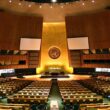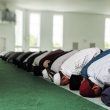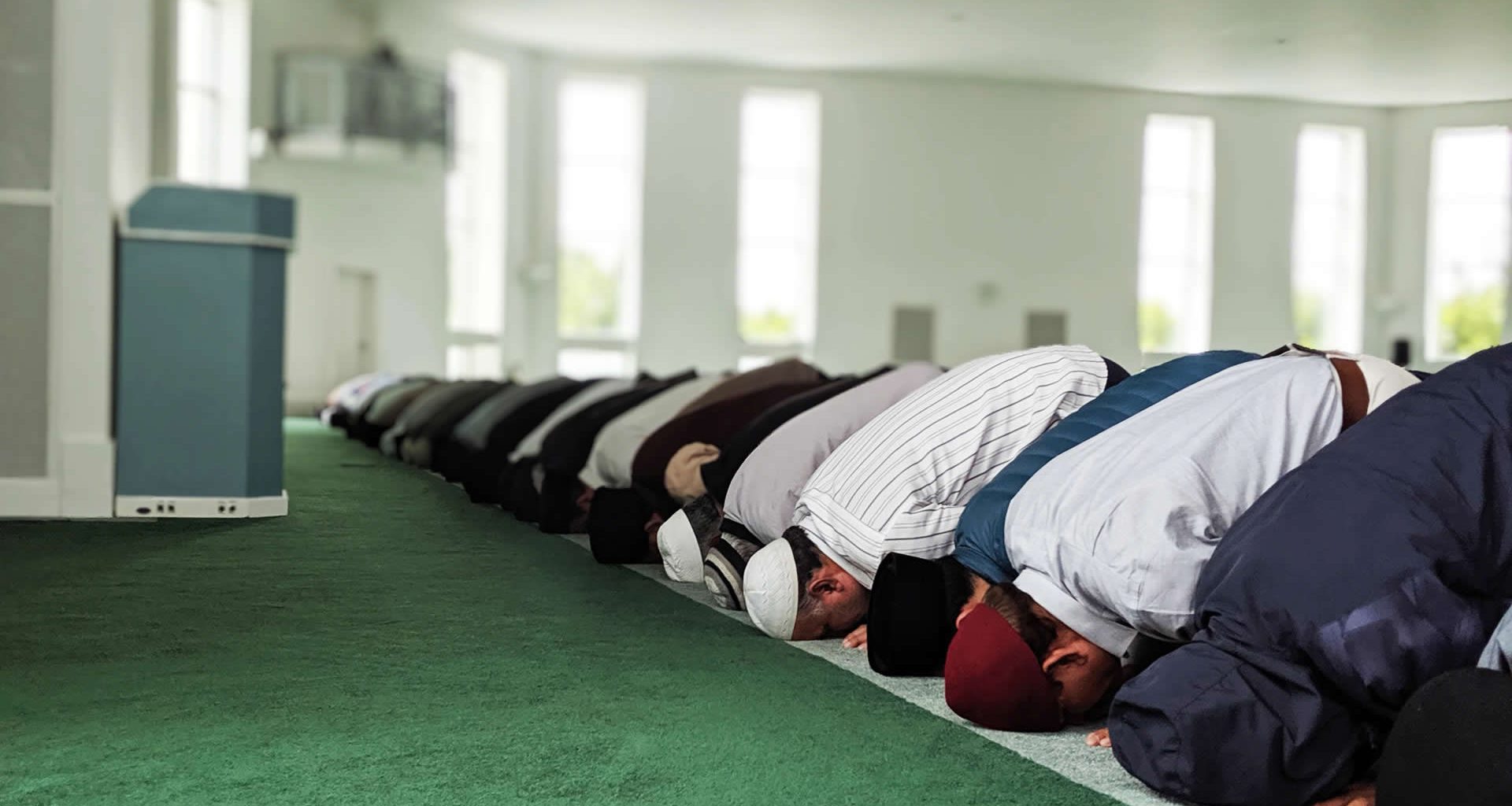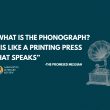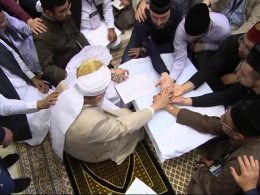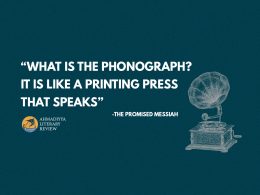In 1872, a surgeon named Henry Thompson laid down a challenge in “The Prayer for the Sick: Hints towards a Serious Attempt to Estimate its Value”. He suggested that over a 3-year period, the morbidity and mortality on two comparable wards should be compared, with one being the subject of “special prayer by the whole body of the faithful.” This led to the Prayer Gauge debates of the 19th century and formed the basis for later such studies across a range of medical fields. The framing of this debate around the question of whether God/Allah/Yahweh listens to men and women rather than an assessment of the potential benefits of prayer has largely continued to the present. However, in 2004, Puchalski wrote that: “Physicians and other clinicians who diagnose and develop treatment plans should address spirituality with patients because it can affect how a person understands their illness, how they make treatment decisions, and how they cope with suffering, illness, disability and/or stress.” [1]
We are all familiar with the term “prayer”. Asking Allah the Almighty for His blessings through prayer and supplication is a core element of the life of an Ahmadi Muslim. In this regard, Allah gives glad tidings to His servants in the following verse of the Holy Qur’an [2]:
وَقَالَ رَبُّكُمُ ادْعُونِي أَسْتَجِبْ لَكُمْ
“And your Lord says: Call upon Me, I will answer you.” (40:60)
This is one of several verses of the Holy Quran whereby Allah motivates people to supplicate to Him. In fact, when the subject of supplication through prayers is mentioned, the Holy Quran does not place restrictions on anyone based on religious beliefs, race, creed, or ethnicity. This blessing—the ability to make supplications to their Creator—is available to all creations.
Our beloved Holy Prophet’ssa life was a living testimony on the subject of prayers and supplications, as evident through the sunnah and the hadith. It is narrated by Ibn Umarra that the Holy Prophetsa beautifully encapsulated the vast topic of prayer with the following saying:
“The place of prayer (salah) in religion is like the place of the head in the body.” [3]
Blessings of Prayer (Barakatud-Dua)
As Ahmadi Muslims, we are privileged and fortunate to be the followers of the Promised Messiahas. Through his first-hand experience on the subject of prayer and supplicating to Allah, he fervently unfolds the philosophy of prayers, how they are accepted and how one should supplicate to Allah to achieve the best results in this regard.
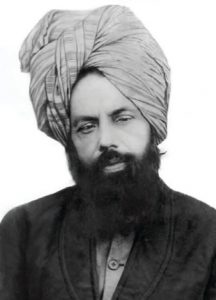
While the Promised Messiahas was engaged in addressing challenges by his opponents, he became aware of the two books written by Sir Syed Ahmad Khan. In those books, the author claimed that prayers were merely a form of worship used by followers in times of need. According to him, prayer did not genuinely aid in the accomplishment of desired outcomes because God did not intervene with natural laws and everything appeared to be pre-ordained. Sir Syed Ahmad Khan expressed his disbelief in the efficacy of prayers and the existence of angels. These ideas, which contradicted Islamic principles, were comprehensively addressed by the Promised Messiahas in his esteemed book called Blessings of Prayer (Barakatud-Dua) in 1893. In this book, the Promised Messiahas comprehensively explains how prayer connects a person to his Lord, Allah the Almighty, which is still applicable to this day. The Promised Messiahas vehemently defends and logically describes the power of prayer.
In the book, the Promised Messiahas writes:
“Prayer, in essence, means a relationship of mutual attraction between a righteous person and his Lord. This means that God’s grace first draws a person towards Himself, and then, through the magnetism of the person’s sincerity, God draws closer to him. In the state of prayer this relationship reaches a point where it manifests wonderful qualities. When a man in grave difficulty falls down in prayer with perfect certainty, perfect hope, perfect fidelity, and perfect resolve; and when he becomes perfectly alert and advances far into the field of self-annihilation, tearing aside all veils of heedlessness, lo and behold, he finds before him the Divine threshold, and he perceives that God has no associate. His soul then prostrates itself at the Divine threshold and the power of attraction that is invested in him draws the bounties of God Almighty towards him. It is then that the Glorious God attends to the fulfilment of the desired objective, and casts the effect of the prayer on all the preliminary means, which, in turn, produce the means that are essential for the achievement of the objective.” [4]
A lot of us are fortunate enough to have experienced the phenomenon described here. The acceptance of prayers fills us with joy and encouragement, and puts our hearts at peace. Such miraculous moments in our lives not only strengthen our faith in the belief of acceptance of prayer by Allah, but such experiences make one adhere firmly to the belief of Tawakkul-allaAllah. We feel, in that moment, that we are progressing through the states of man described by the Promised Messiahas in the Philosophy of Teachings of Islam. In this revolutionary book, the Promised Messiah as writes:
“The method of establishing perfect spiritual relationship with God that the Holy Quran teaches us is Islam, meaning devoting one’s whole life to the cause of God and being occupied with the supplications which we have been taught in Surah Fatihah. This is the essence of Islam.” [5]
Thus, there is no doubt that prayers and supplications have a paramount influence on promoting one’s spiritual life. Whether they believe in Allah or His unity, Allah the Almighty hears and answers the prayers of all creatures. He is Ar-Rahman (The Most Compassionate) and has made incumbent upon Himself to answer when He is called upon by anyone.
What does recent medical research say about prayer?
Although Islam established the benefits of prayer over 1400 years ago, it is only recent medical science that is now finding prayer to be a powerful tool for healing. People of all faiths believe in the power of supplicating to God, or to some higher being, to bring about physical and spiritual healing. Researchers are unveiling the truth and are separating the facts from fiction on the topic of prayers to alleviate the symptoms of all kinds of diseases by just mere supplication (i.e., prayer). As such, prayer’s ability to heal has been studied in randomised, double-blind trials.
Recent studies have further examined the link between prayer, religion, and health. In joint research carried out by the Faculty of Medicine, University of Malaya, Kuala Lumpur, and Faculty of Engineering, Al-Quds University, Jerusalem, Palestine, researchers concluded that salat promotes relaxation and minimises anxiety for individuals who regularly perform it [6]. Numerous studies have generally linked religion and spirituality to better health outcomes. Several positive effects of salat on health were identified in one study, including positive psychological, neurological, cardiovascular, and musculoskeletal effects [7].
The effects of prayer on cardio-compromised patients were studied in a controlled trial at San Francisco General Medical Centre, and it was found that intercessory prayer to the Judeo-Christian God has a beneficial therapeutic effect on patients admitted to a Coronary Care Unit [8]. Pre-angiography anxiety can be reduced by listening to the Qu’ran being read, according to Iranian studies [9]. According to Golestan’s research, a person’s views of the value of prayer is influenced positively by their experience of prayer prior to the onset of cancer [10]. In a clinical trial, thirty-three coma patients were randomly assigned to one of two groups: either an intervention or a control. For 14 days, participants listened to the Adhan through headphones at noon and at night. Before and after each intervention, the patient’s level of consciousness was assessed, and there was a significant improvement in consciousness after the intervention [11]. Moreover, an Iranian study of 12 patients with objectively diagnosed carpal tunnel syndrome in 23 hands found that 48% of patients improved significantly six weeks after intercessory prayer for three weeks [12].
Medical science is presenting strong evidence that prayer, or intercessory prayer, as an intervention combined with other medical treatments can have a profound healing effect on disease symptoms. The phenomenon of healing with prayers is found to be equally replicable in all religions and faiths. Thus, prayer is a powerful tool. Not only is it for the spiritual upbringing of the person who is asking for blessings through prayer, but patients can be healed of their ailments, similar to conventional medicine.
Prayer versus medicine
At the intersection of medicine and prayer, the Promised Messiahas writes the following in Blessings of Prayer (Barakatud-Dua):
“Does he [Sir Syed Ahmad Khan – a critic of prayer] believe that God Almighty had the power to invest certain medicines such as Turbad, Scammony, Senna and Cottonseed with such powerful effects that one full dose of one of them immediately relieves diarrhoea; or, for instance, that God has endowed Arsenic, Beesh and other fatal poisons with such powerful effects that imbibing a pure extract of these is enough to dispatch a person from this world within minutes; and yet He treats as dead and ineffective the earnest and heartfelt supplications of His chosen ones as if they were without any effect whatsoever! Is it possible that there should be disharmony in the Divine order, and that the Will which God has manifested in medicines for the benefit of His creatures should fail to manifest itself in the case of prayers? This is definitely not so.” [3]
Consequently, we can see the power of prayer and how important it is in our spiritual and physical development.
References
- “Health, Prayer and Spirituality: A Review of the Muslim Contribution.” by John F. Mayberry DSc MD LLM FRCP | Aug 26, 2020. https://jbima.com/article/health-prayer-and-spirituality-a-review-of-the-muslim-contribution/
- Al-Mu’min, 40:60
- Majmau’l-Awsat, 3:154, (2313.) Imam Tabarani, Mu’jamu’s-Saghir
- Blessings of Prayer (Barakatud-Dua)
- The Philosophy of the Teachings of Islam
- Hazem et al, “Effect of Muslim Prayer (Salat) on α Electroencephalography and Its Relationship with Autonomic Nervous System Activity”. Centre for Innovation in Medical Engineering, Faculty of Engineering, University of Malaya, Kuala Lumpur, Malaysia.
- Chashmi et al, “A review of the literature on the health benefits of Salat (Islamic prayer)”, GNP Hospital, Department of Medicine, Jeddah, Saudi Arabia.
- “Positive therapeutic effects of intercessory prayer in a coronary care unit population”. Medical Service, San Francisco General Medical Center, CA. PMID: 3393937 DOI: 10.1097/00007611-198807000-00005
- Majidi SA. “Recitation effect of Holy Quran on anxiety of patients before undergoing coronary artery angiography” Journal of Guilan University of Medical Sciences 2004, 13: 61-67
- Hojjati H, Hekmati N, Khandousti S et al “An investigation into the dimensions of prayer in cancer patients.” Religion and Health 2015 3: 65 – 72
- Moghaddam F, Payami Bousari M & Faghihzadeh S “Effect of auditory stimulation by recitation of prayers (Azan) on consciousness level of comatose patients: a clinical trial.” Preventive Care in Nursing and Midwifery Journal 2015, 5: 71 – 79
- Etefagh L, Azma K & Akram J Prayer: Therapy: using verses of Fatiha Al-Kitab, Qadr and Towhid Surahs on patients suffering from Tunnel Karp syndrome. Interdisciplinary Quranic Studies 2009 1: 27 – 31

